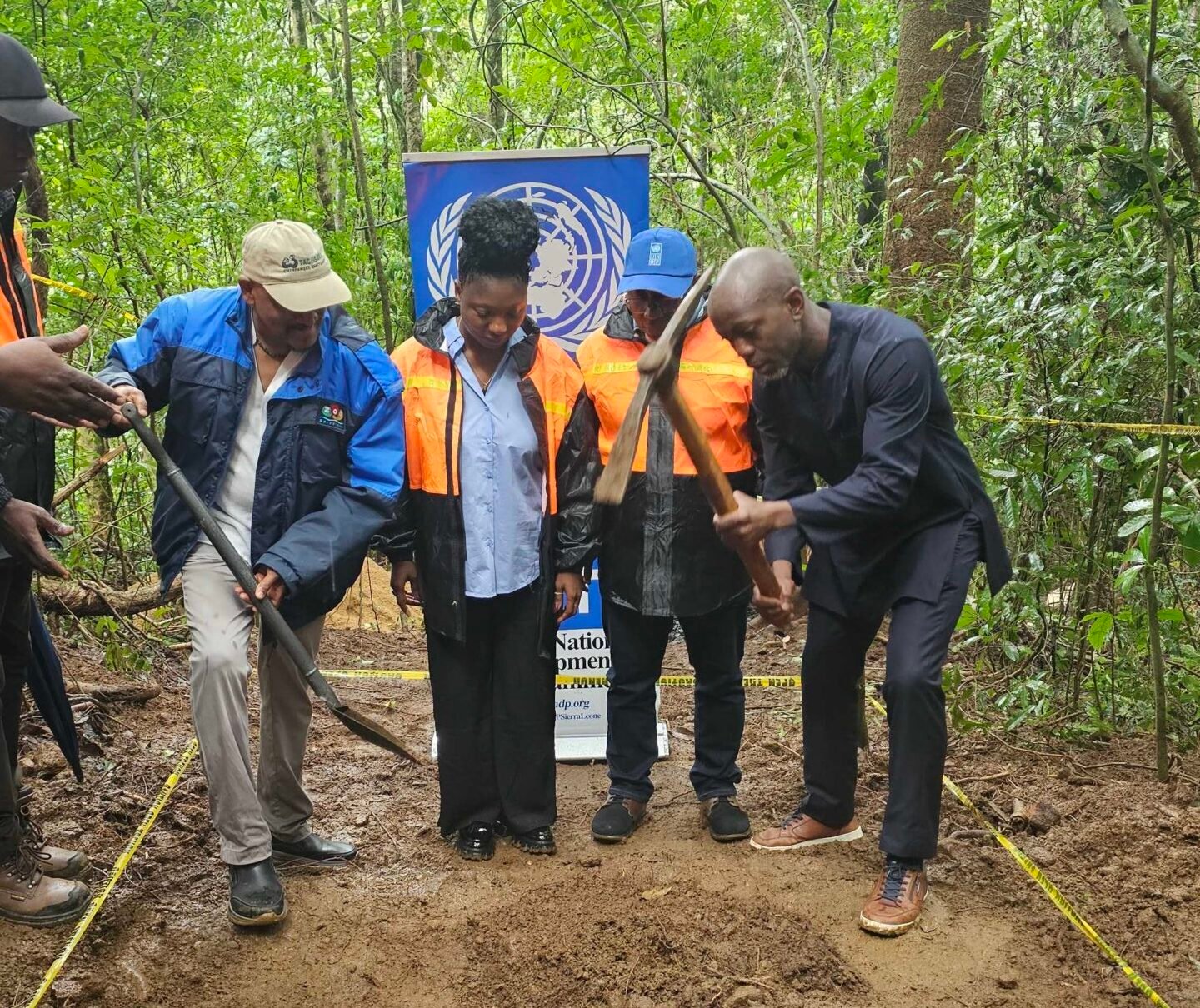

By Kemo Cham
Nearly a decade after the deadly West African Ebola epidemic was declared over Sierra Leone has commenced a groundbreaking study on the long-term immunogenicity and experiences of survivors of the viral disease.
Researchers from Sierra Leone, Japan and the United States are investigating the long-term immunological memory of survivors and their close dependents by exploring how their lifestyles have evolved since the epidemic. They will also examine the social and contextual factors influencing those changes. The study aims to understand host-pathogen immune response among Ebola virus disease (EVD) survivors and close contacts, 10 years after the outbreak. Specifically, researchers will determine whether survivors’ immune cells retain memory and protection against the virus, while also exploring the long-term health challenges faced by survivors and their dependents.
Beyond health, the study will raise awareness of the struggles and adaptations of Ebola survivors, advocate for improved support for their wellbeing and strengthen opportunities for international collaboration.
Professor Alhaji Umar N’jai, a Sierra Leonean biomedical scientist and researcher, is serving as Lead Principal Investigator for Sierra Leone. He explained that the initiative will also contribute to the development of therapeutics and more effective vaccines. Importantly, the study will allow researchers to understand the genetic background of asymptomatically infected individuals.
“This study will enable us to understand Ebola host-pathogen responses as it relates to long-term immunogenicity and immune memory in survivors and their close contacts, who were asymptomatic,” Prof. N’jai said in an interview. “The insights gained, especially with characterization of B and T cells of EVD survivors and close contacts as well as production of monoclonal antibodies will contribute to the development of new therapeutics and more effective vaccines.”
Prof. N’jai, who works with the University of Sierra Leone, Koinadugu College and the University of Wisconsin-Madison in the U.S., is leading the project alongside his longtime collaborators, Prof. Yoshi Kawaoka of the University of Tokyo and Dr. Peter Halfmann of the University of Wisconsin-Madison.
Also involved as co-investigators are Prof. Foday Sahr, Executive Director of Sierra Leone’s National Public Health Agency and Prof. Haja Isatta Wurie of the College of Medicine and Allied Health Sciences, University of Sierra Leone.
While this team has previously conducted serological studies on Ebola survivors, Prof. N’jai noted this will be the first-ever long-term (over 10 years) serological study conducted anywhere in the world.
“The combination of long-term serological, epidemiological and anthropological research to determine post-Ebola sequelae and effects on infected persons has not been done before. We are in somewhat of new territory with opportunities to unravel new findings,” said Prof. N’jai, who is also Founder and Chief Strategist of Project 1808.
The study comes 11 years after the World Health Organization (WHO) declared an end to the West African Ebola epidemic, which devastated Sierra Leone and its Mano River Union neighbors, Guinea and Liberia. It was the largest and deadliest Ebola outbreak on record, surpassing all previous epidemics since the virus was discovered in 1976.
WHO declared the outbreak a Public Health Emergency of International Concern (PHEIC) on August 8, 2014. By the time the epidemic was declared over in 2016, there were 28,616 cases and 11,325 deaths across seven countries, according to WHO. More than 90 percent of the cases and fatalities occurred in Sierra Leone, Guinea and Liberia. Among the 17,323 survivors across the three countries, Sierra Leone accounted for 3,589.
One of those survivors is Abdulai Dumbuya, a bike rider, who is among about 70 people volunteering in the study.
“It has been a long time since we were asked about how we are faring,” Abdulai Dumbuya said during an orientation ceremony for participants held at the 34 Military Hospital in Freetown on Friday, August 22, 2025.
“Many of us have problems like vision difficulty. I can’t walk long distances without pain. And I developed this after my encounter with Ebola,” he explained.
The research team is collaborating with the Sierra Leone Association of Ebola Survivors (SLAES), for which Abdulai Kargbo serves as focal person. He expressed optimism that the findings will benefit Sierra Leone and the world at large.
“Many of us have been going through a lot. The feedback from this study will benefit us all,” he said.
The orientation featured two focused group discussions in which participants recounted their experiences and challenges. They also discussed available support systems such as healthcare and livelihood opportunities.
Many EVD survivors have reported persistent physical symptoms such as joint and muscle pain, fatigue and vision problems, along with psychological distress, including anxiety, depression and post-traumatic stress, according to various reports.
Besides investigating the causes of these complications, Prof. N’jai said he and his colleagues also hope to “bring out the positive out of Ebola” by generating data that will inform future healthcare responses. By examining the biological mechanisms behind those long-term complications the study also aims to highlight the support needs of survivors.
“A research like this will tell us whether, post-exposure, the immune system still provide protection after so many years,” said Dr. Mohamed Jalloh, a PhD candidate serving as co-investigator.
“For Sierra Leone this means we are going to lead knowledge production on Ebola globally. We will also be in a position of writing a positive story out of Ebola; from one of tragedy to one of being the solution in global health,” added Prof. N’jai. https://thecalabashnewspaper.com/sierra-leone-launches-study-on-long-term-immune-response-and-experiences-of-ebola-survivors/














